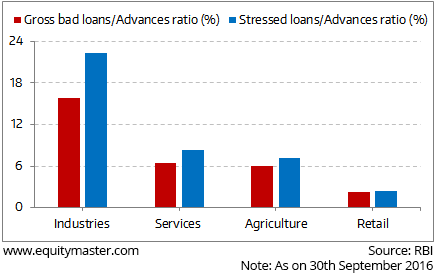Investment in securities market are subject to market risks. Read all the related documents carefully before investing
Grab Our Small Cap Recommendation
Service at a 60% Discount
- Home
- Todays Market
- Indian Stock Market News May 30, 2017
Indian Indices Trade Flat; Realty Sector Down 1.2% Tue, 30 May 11:30 am
Indian share markets are presently trading marginally higher. Sectoral indices are trading on a mixed note with stocks in the capital goods sector and realty sector witnessing most of the selling pressure. Healthcare stocks are trading in the green.
The BSE Sensex is trading up 32 points (up 0.1%), while the NSE Nifty is trading up by 7 points (up 0.1%). The BSE Mid Cap index is trading up by 0.4%, while the BSE Small Cap index is trading flat. The rupee is trading at 64.63 to the US$.
Indian indices are trading on a volatile note today due to global as well as domestic factors.
On the global front, reports that Greece may forego its next bailout payment if creditors cannot strike a debt relief deal have spooked the Asian markets.
For domestic share markets, as many as 1,362 listed companies are scheduled to announce their results today.
The list includes companies such as Berger Paints, IRB Infra, Apollo Hospitals, BEML, Gitanjali Gems, Max Financial Services and Natco Pharma, etc.
But despite the hoopla surrounding the ongoing earnings season, we don't see much to cheer about.
Just Released: Multibagger Stocks Guide
(2017 Edition)
In this report, we reveal four proven strategies to picking multibagger stocks.
Well over a million copies of this report have already been claimed over the years.
Go ahead, grab your copy today. It's Free.

Earnings growth has slid in FY17 despite the lower tax outgo and other income boost. Companies focused on the domestic market too have slowed due to notebandi.
Further, the actual performance for the last quarter of FY17 has been far below brokerage estimates.
This begs the question: How can we make money in a volatile market with little support from earnings trends and brokerages who can't seem to get it right?
We believe a few super investors could provide the clue. These guys have an eye for multibaggers irrespective of the macro environment.
To learn more about these super investors and their stock-picking approach, download a free copy of The Super Investors Of India.
Apart from the above, market participants are tracking the possible arrival of monsoon rains which is expected to hit the southern Kerala.
One shall note that the Indian Metrological Department's (IMD) has forecasted a normal rainfall this calendar year.
Also, as per the Australian Bureau of Meteorology, the rain disrupting El Nino still has a 50% chance of developing later this year albeit weakly. Also, the prospects of Indian Ocean Dipole (IOD) - a phenomenon that strengthens monsoon in the country-forming over the Indian Ocean are looking good.
As per the Bureau five of eight international climate models suggest the tropical Pacific Ocean is likely to warm above El Niño thresholds during the second half of 2017.
The Australian Bureau of Meteorology has predicted the arrival of southwest monsoons in India in the first week of June, deviating slightly from IMD's predicted date of 30th May.
A normal monsoon is critical since most of our farmers are still dependent on monsoon rains for their subsistence.
There's a possibility that the actual rains across the country this year would possibly match or even beat the IMD's forecast.
We will know for sure over the upcoming months.
Having said that, this is certainly not something to speculate on while buying stocks.
On other news, around 50 stressed accounts have been identified as being on the watch list of the government, the Reserve Bank of India and, in some cases, vigilance agencies.
The above list represents stressed accounts, which includes the loans that have turned bad or been restructured as of December 2016.
The list includes Videocon Industries Ltd; Jindal Group firms such as Jindal Steel and Power Ltd; Punj Lloyd; Jaypee Group; Lanco, which includes Lanco Infratech; Monnet Ispat; Essar Ltd; and Bhushan Steel.Please note that bad loans at state-run banks have grown more than Rs 1 lakh crore since April 2016 to Rs 6 lakh crore as of December 31, 2016. And Indian industries form a huge share of these bad accounts, as can be seen from the chart below:
India Inc in the Centre of the Bad Loan Storm

To tackle the above problem, the Reserve Bank of India is pondering over initiating tough measures against willful defaulters.
While RBI's proactive measure to tighten NPAs is proactive, banks need to take their share of blame. In one of our recent editions of The 5 Minute WrapUp, we had highlighted how the banks' return ratios had deteriorated due to their profits written off on account of NPA provisions.
The RBI has done well to focus its attention on the willful defaulters. However, this seems to be a curative measure than a preventive one. For the bad loans problem to be solved, the root cause i.e. the initial lending process of banks needs to be put in order.
For information on how to pick stocks that have the potential to deliver big returns, download our special report now!
Read the latest Market Commentary


Equitymaster requests your view! Post a comment on "Indian Indices Trade Flat; Realty Sector Down 1.2%". Click here!
Comments are moderated by Equitymaster, in accordance with the Terms of Use, and may not appear
on this article until they have been reviewed and deemed appropriate for posting.
In the meantime, you may want to share this article with your friends!